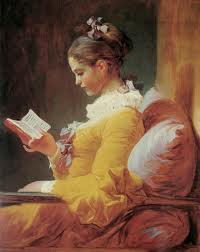Experience is like that river that can’t be stepped in the same way twice. Just as college discounts and college savings are perpetually in a state of motion, so is a text.
The experience of reading can be split into three sections based on time; the first reading of the text, the aftermath and residue, and the rereading of the text. Each reading is particular, while the general text stays the same. It’s like that line in the song from Pocahontas, “You can’t step in the same river twice”. But instead of just the water flowing and changing, the reader is constantly changing and becoming, and because the reader is constantly changing, their constructions of the same text change as well. After reading a text, the direct effects and impressions begin to fade, but when a text profoundly affects the reader, the relationship that the reader forms with the text will change the reader. It’s like meeting a new person, falling into a deep and complex relationship immediately, and then having to say goodbye to them, because they do not exist without you. There will always be the memory of the experience, and you are changed by that memory from that moment on.
The first reading is just like meeting someone for the first time. And different books inspire different first impressions. The first time I read War and Peace by Leo Tolstoy, I could not put it down and stop reading until I had finished—roughly fifteen hours later. The words on the page pulled my eyes and my mind in to a point where my eyes could not keep up with my mind wanting to ingest every last morsel on the page. When I had finished, it was as though I had donned glasses and every particle of light that hit my eye was refracted by War and Peace.
I read novels quickly, preferring to absorb the novel as rapidly and intensely as possible rather than dragging the experience out over months. This applies especially to nineteenth century novels, mainly Russians works. I’ve been able to read War and Peace, The Brothers Karamazov, and Crime and Punishment in a single sitting because once I’ve stepped into the world I cannot bear to leave it until it had come to fruition.
On the other hand, when I read The Unnamable by Samuel Beckett for the first time, it was necessary for me to put it down and take a day or two before I picked it back up. It took me three separate sittings to finish it because of the physical toll it would take on me due to the overwhelming nature of the novel. His novels have always plainly spelled out the undercurrents of my own thoughts, and watching them be thrust to the surface and spelled out in language made me need to take a step back.
The beauty of these first readings is that when you look back at them, you realize that what struck you in the first reading is what you held as a priority when you first read it. When I spoke with Ilja Wachs, a teacher of nineteenth century literature at Sarah Lawrence College, he related his experiences reading Anna Karenina for the first time. He noted that in his early readings of Anna Karenina, “whenever Levin came in the scene, I’d say ‘Get out of here, I want my Anna!’ Anna was beautiful, Anna was hot, I was in love with Anna, really”.[1] As a young adult, the vibrant and lovely character of Anna was what drew him, and his reading was centralized around Anna. Now when he rereads, “every time Anna comes in the scene I feel depressed, ‘Get out of here, I want my Levin’. I want Levin mowing, I want Levin in the spring. You get there real changes”.[2] As a grown man, now in his 80s, he is no longer attracted to Anna’s tragic beauty; instead he wants the collectivity, universality, and “grounded substantiality”[3] of Levin. “I can no longer stand Anna, now I want Levin on the scene all the time”[…] the way he extracts meaning from work, I mean, I think that’s very fundamental for me, and wasn’t then”.[4] As his priorities and way of looking at the world changed as he grew older, so did his readings and experience of reading. He compares it to a “wonderful mirror”,[5] reflecting back at you your values. As one changes, so does the readings of the text; the text initially offers a plurality of possible readings, and the reader ascribes to one and reconstructs it for oneself. The reader “relates the different views and patterns to one another [and he] sets the work in motion, and so sets himself in motion, too”.[6] This is why the definition of the text is not in the text itself, but in the experience of the reading and the actualization of the interaction between the text and the reader.
[1] Wachs, Ilja. Personal interview. 18 Apr. 2013.
[2] Wachs, Ilja. Personal interview. 18 Apr. 2013.
[3] Wachs, Ilja. Personal interview. 18 Apr. 2013.
[4] Wachs, Ilja. Personal interview. 18 Apr. 2013.
[5] Wachs, Ilja. Personal interview. 18 Apr. 2013.
[6] Iser, Wolfgang. The Act of Reading. Baltimore: The Johns Hopkins University Press, 1978. 21. Print.
———————————————————————————————————
Marina Manoukian, Sarah Lawrence College
Follow the Campus Clipper on Twitter and Like us on Facebook!
Interested in more deals for students? Sign up for our bi-weekly newsletter to get the latest in student discounts and promotions and follow our Tumblr and Pinterest. For savings on-the-go, download our printable coupon e-book!




